St. John’s Wort might seem like a safe, natural way to ease mild depression - and for some people, it works. But what most users don’t realize is that this popular herbal supplement can quietly sabotage life-saving medications. It doesn’t just cause mild side effects. It can make your blood thinner useless, cause birth control to fail, or trigger organ rejection after a transplant. This isn’t speculation. It’s documented in hospitals, regulatory agencies, and case reports worldwide.
How St. John’s Wort Changes How Your Body Handles Medications
St. John’s Wort doesn’t just sit in your system. It actively rewires how your body processes drugs. The key culprit is a compound called hyperforin, found in the plant’s flowers and leaves. Hyperforin turns on a genetic switch in your liver called the pregnane-X-receptor. This switch tells your body to produce more of two powerful enzyme systems: CYP3A4 and P-glycoprotein.
These systems are like the body’s cleanup crew. They break down and flush out foreign substances - including prescription drugs. When St. John’s Wort turns them on full blast, your medications get cleared out too fast. They never reach the level needed to work properly. This isn’t a small change. Studies show CYP3A4 activity can jump by 2 to 3 times within two weeks of taking St. John’s Wort. And the effect doesn’t vanish the day you stop. It lingers for up to two weeks after you quit.
Warfarin and Blood Thinners: The Silent Risk
If you’re on warfarin (Coumadin) or phenprocoumon (Marcoumar), St. John’s Wort is not an option. These drugs keep your blood from clotting too easily. Their dose is precise - too little and you risk a stroke or clot; too much and you bleed internally. St. John’s Wort throws that balance off completely.
In one case, a 62-year-old man on stable warfarin saw his INR - a key blood clotting measure - drop from 2.8 to 1.4 in just seven days after starting St. John’s Wort. That’s a 50% drop in effectiveness. He was at high risk for a clot. European regulators logged 22 such cases between 1998 and 2000. All involved unstable INR levels. No one knew the supplement was the cause until it was too late.
Birth Control Failure: More Common Than You Think
Women taking oral contraceptives are especially vulnerable. St. John’s Wort reduces levels of ethinyl estradiol and levonorgestrel - the active ingredients in most birth control pills - by 15% to 25%. That doesn’t just mean a higher chance of pregnancy. It means real pregnancies. Between 2000 and 2003, Sweden recorded 47 cases of contraceptive failure linked to St. John’s Wort. Twelve of those ended in confirmed pregnancies.
GoodRx analyzed FDA reports and found 217 cases of possible birth control failure tied to this herb. Many women thought they were protected because they took their pill every day. They didn’t know their supplement was undoing it. Today, the European Union requires St. John’s Wort labels to warn specifically about birth control interactions. The FDA hasn’t mandated that yet - but they’ve issued 17 warning letters to manufacturers since 2019 for failing to include these warnings.
Transplant Patients: A Life-Threatening Mix
For people who’ve had kidney, liver, or heart transplants, St. John’s Wort can be deadly. Immunosuppressants like cyclosporine and tacrolimus keep the body from rejecting the new organ. They need to stay at a very specific level in the blood. Too low? Rejection. Too high? Toxicity.
In one study, 10 kidney transplant patients who added St. John’s Wort saw their cyclosporine levels drop by 54%. Two of them suffered acute organ rejection. Another study showed tacrolimus levels falling by up to 60%. The European Medicines Agency reviewed 17 cases and issued a formal warning in 2007. These aren’t rare outliers. They’re predictable outcomes of how the herb works. Yet, many transplant patients still take it, thinking it’s “natural” and therefore safe.
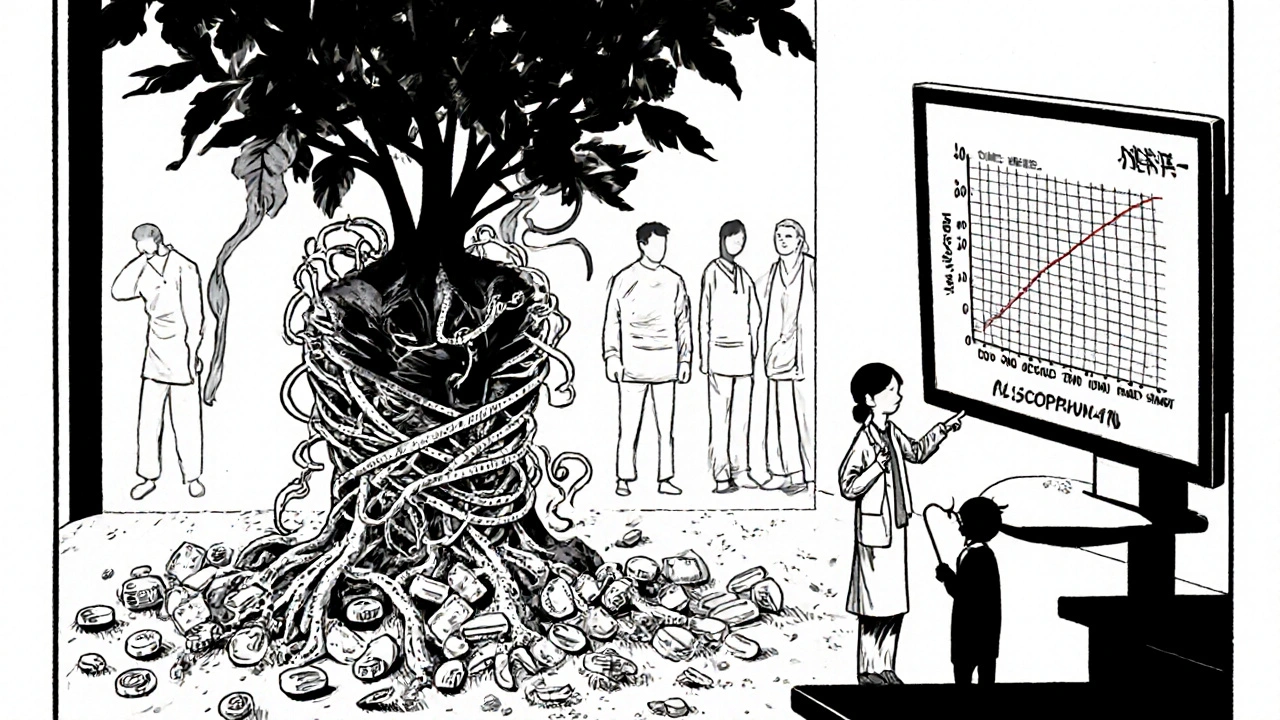
HIV Medications: Risk of Drug Resistance
St. John’s Wort doesn’t just reduce the effectiveness of HIV drugs - it can make them useless. Protease inhibitors like indinavir are especially vulnerable. A 2004 clinical study found that St. John’s Wort slashed indinavir levels in the blood by an average of 57%. In some people, it dropped by as much as 99%.
This isn’t just about the drug not working. It’s about creating drug-resistant HIV strains. When drug levels are too low, the virus isn’t fully suppressed. It mutates. And those mutations stick. One UK patient saw their viral load spike after adding St. John’s Wort to their regimen. The U.S. Department of Health and Human Services explicitly warns against using this herb with any HIV medication. Yet, only 18% of supplement users in a 2023 survey knew this risk existed.
Antidepressants: The Serotonin Syndrome Danger
Many people take St. John’s Wort because they’re depressed. But if they’re already on an SSRI like fluoxetine or sertraline, or an SNRI like venlafaxine, they’re playing Russian roulette. Both St. John’s Wort and these drugs increase serotonin. Together, they can flood the brain with too much.
This is serotonin syndrome - a medical emergency. Symptoms include fast heart rate, high blood pressure, muscle spasms, confusion, and excessive sweating. A 2021 case in the U.S. involved an 18-year-old who developed paranoid behavior, a heart rate of 128 bpm, and blood pressure of 162/98 after combining St. John’s Wort with 5-HTP, melatonin, and possibly Adderall. He ended up in the hospital needing IV fluids and sedatives.
The Mayo Clinic says serotonin syndrome symptoms occur in over 90% of cases. The American Psychiatric Association now recommends waiting at least 14 days between stopping an antidepressant and starting St. John’s Wort. But most people don’t know this. They just switch from one to the other without a break.
Other Dangerous Interactions
St. John’s Wort doesn’t stop at these big ones. It also messes with:
- Benzodiazepines like Xanax - reducing their effect by up to 40%, making anxiety worse
- Digoxin (Lanoxin) - cutting blood levels by 25%, which can cause irregular heartbeat
- Phenytoin (Dilantin) - lowering levels by 19-46%, increasing seizure risk
The FDA received 12 reports of breakthrough seizures between 2000 and 2005 in people taking St. John’s Wort with seizure meds. Pharmacists now use a Drug Interaction Checker tool that lists 142 known interactions. And that’s just what’s been documented.
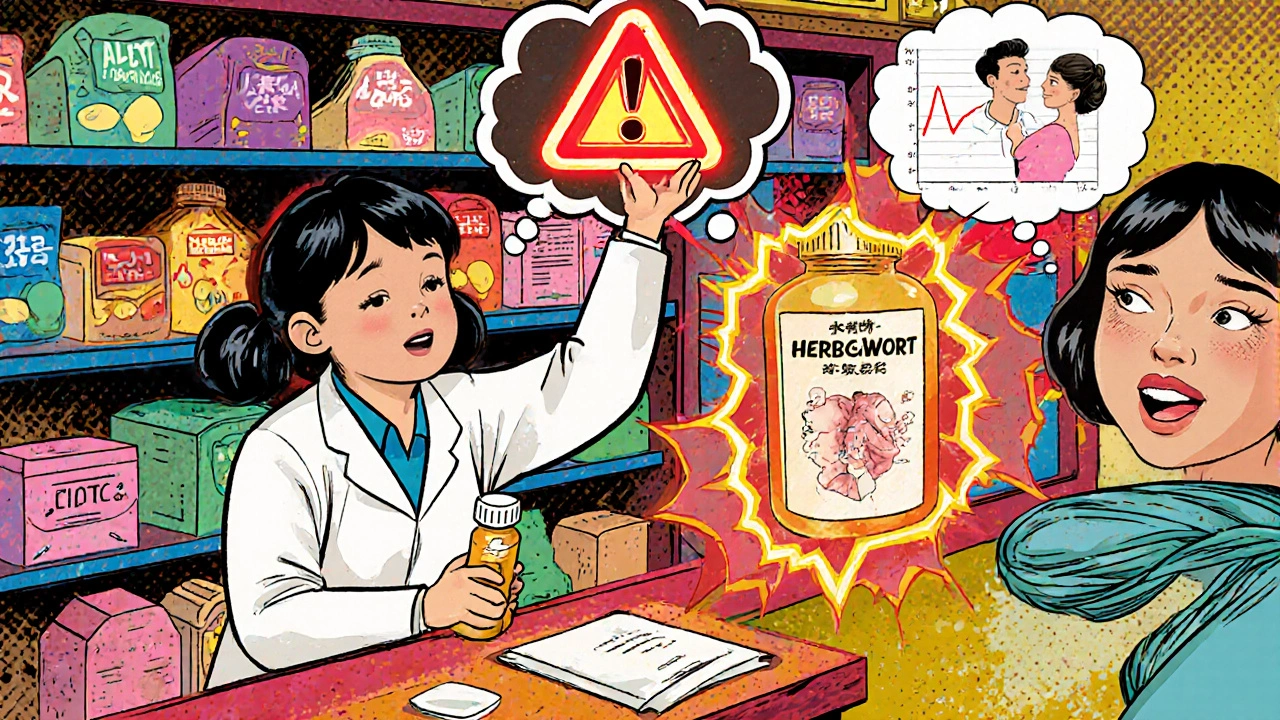
What You Should Do
If you’re taking any prescription medication - especially for heart disease, HIV, depression, transplants, or birth control - do not take St. John’s Wort without talking to your doctor or pharmacist. Even if you’ve been taking it for months, stop before starting a new drug. The enzyme induction lasts for weeks.
Ask your pharmacist to run a quick check. Most pharmacies have tools to scan for interactions. If you’re switching from an antidepressant to St. John’s Wort, wait 14 days. If you’re on birth control and using it, use a backup method. Don’t assume it’s safe because it’s herbal.
And if you’re considering it for depression? Talk to a mental health professional. There are safer, proven options - and none of them come with a 50% chance of making your other meds fail.
What’s Changing in 2025
The tide is turning. Starting in January 2025, the FDA will require all St. John’s Wort products sold in the U.S. to display a “Drug Interaction Alert” symbol on the front label - just like black box warnings on powerful prescription drugs. The European Union already has this rule.
Researchers are also working on a solution: hyperforin-free extracts. Early trials show these versions still help with depression but cause almost no enzyme induction. One 2023 study found a hyperforin-reduced extract only lowered a key drug’s levels by 9% - compared to 56% with regular St. John’s Wort. This could be the future. But until then, assume every bottle you buy has the old, dangerous formula.
Why People Still Take It
Despite the risks, sales hit $187 million in the U.S. in 2022. Why? Because it’s marketed as “natural,” “safe,” and “prescription-free.” Many users don’t connect their new supplement to their medication problems. They blame stress, aging, or bad luck. A 2023 Consumer Reports survey found only 32% knew it could reduce birth control effectiveness. Only 18% knew about HIV risks.
That’s the real problem. It’s not that people are careless. It’s that they’re misinformed. Labels don’t scream warnings. Pharmacists aren’t always asked. Doctors don’t always ask about supplements. But the data doesn’t lie. This herb is one of the most dangerous on the market - not because it’s toxic, but because it quietly turns your other meds into paper.

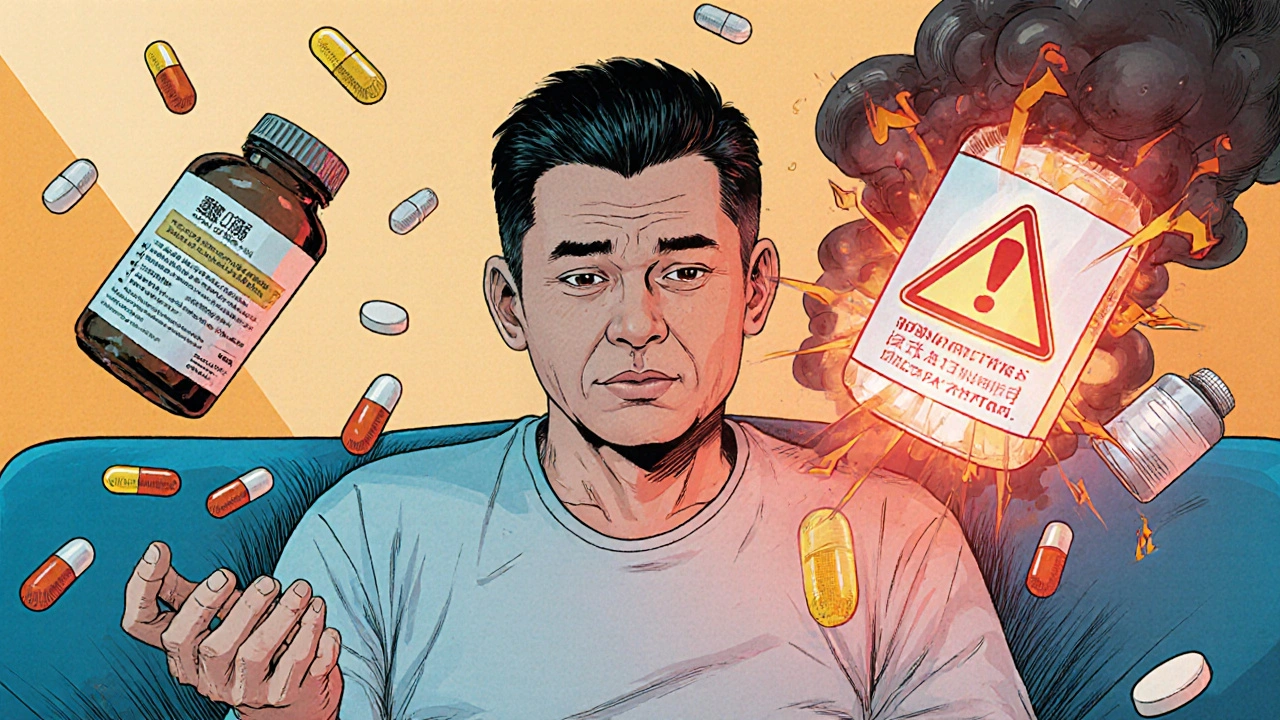

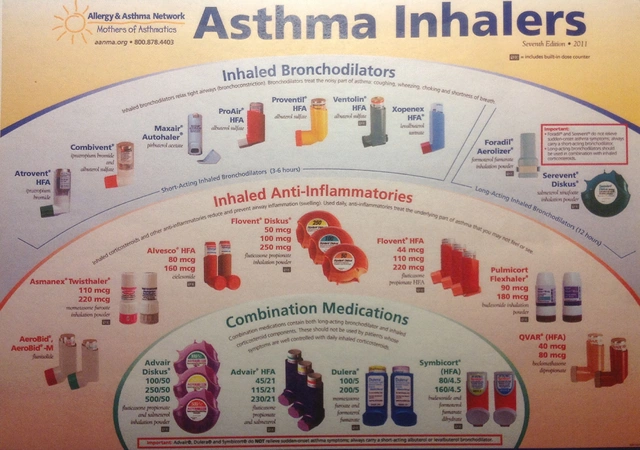

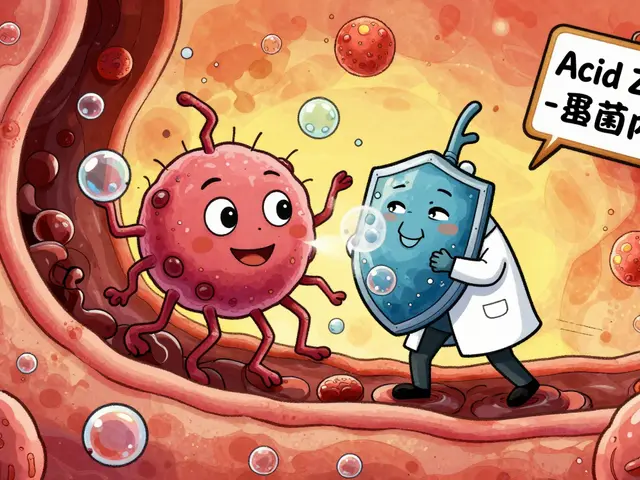

james lucas
November 23, 2025 AT 03:45i had no idea st johns wort could mess with my blood thinner like that 😳 i been takin it for my 'mild' depression for like 8 months now and my doc never said nothin... guess i gotta call em tomorrow. also why do they even sell this stuff without a big red warning on the front? like come on
Jessica Correa
November 24, 2025 AT 08:38my sister had a baby last year and she was on birth control and took this herb because she thought it was 'natural'... turns out she got pregnant and no one connected the dots until the ultrasound. the scariest part? she didn't even know it was dangerous. labels should be screaming not whispering
manish chaturvedi
November 25, 2025 AT 17:49as someone from India where herbal remedies are deeply rooted in tradition, I find this both alarming and tragic. We have long respected nature’s medicine, but modern pharmacology demands that we also respect its boundaries. St. John’s Wort is not evil-it is powerful. And power without understanding is dangerous. The FDA’s new labeling requirement is a step in the right direction, but education must begin in homes, not just pharmacies.
Nikhil Chaurasia
November 26, 2025 AT 08:43my uncle had a heart transplant. he started taking this 'natural antidepressant' because his wife said it was 'safe'. three months later, his body started rejecting the new organ. he spent six weeks in the ICU. they had to put him back on the waiting list. he didn't even know what hyperforin was. he just saw 'herbal' and thought 'good'. this isn't a warning. this is a funeral notice.
Holly Schumacher
November 28, 2025 AT 07:04Let me be perfectly clear: This is not a 'natural remedy.' It is a pharmacologically active compound that induces cytochrome P450 enzymes with the precision of a molecular saboteur. The fact that the FDA has only just mandated labeling after decades of documented cases of organ rejection, contraceptive failure, and drug-resistant HIV is a catastrophic failure of regulatory oversight. And yet, people still buy it because it’s 'organic.' Organic does not mean safe. It means it grew in dirt.
Michael Fitzpatrick
November 30, 2025 AT 02:51i just wanna say that i totally get why people take this stuff. depression sucks and prescription meds can feel like a last resort. but this post made me realize how easy it is to accidentally hurt yourself when you're just trying to feel better. i’m gonna go talk to my pharmacist tomorrow about everything i’m taking-even the 'harmless' supplements. maybe we need a big national campaign like 'don’t mix' or something. people need to know
Shawn Daughhetee
November 30, 2025 AT 21:49my mom’s on warfarin and she started taking this because her friend said it helped her anxiety. i didn’t find out until her INR dropped and she almost had a stroke. i freaked out. we had to go to the ER. now she won’t touch anything without me checking it first. i wish i’d known sooner. this stuff is silent
Miruna Alexandru
December 2, 2025 AT 10:46The real tragedy isn’t the herb-it’s the epistemological arrogance of the wellness industrial complex. We’ve replaced medical authority with Instagram influencers and anecdotal testimonials. The belief that 'natural' equals 'safe' is not ignorance-it’s a cult. And this post is merely the autopsy of a culture that confuses purity with potency. The hyperforin-free extracts? A band-aid on a hemorrhage. We need systemic reform, not reformulated labels.
Patrick Marsh
December 3, 2025 AT 06:37Stop. Read the label. Talk to your pharmacist.